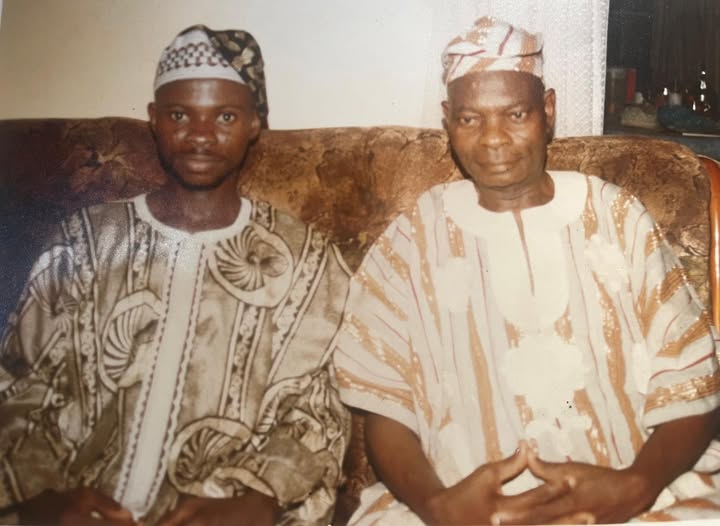Sophisticated Simplicity: Lessons from My Father (Part I) - Saheed Aderinto
Posted by: Benjamin Onuorah
Six months before my father passed at 85 in May 2024, he wrote his Will, in Yoruba, with his own hand. My father belonged to the generation of Yoruba who could write better in Yoruba than in English. His formal education didn’t exceed primary school.
None of the family members doubt the authenticity of this document because we all can easily recognize his signature and handwriting. The simplicity of this document is as sophisticated as the life that produced it. He basically tore a souvenir jotter and wrote his Will—without the help of any lawyer and without a witness.
While his decision to write his Will may appear odd to most Yoruba Muslims who would rather prefer the “conventional” style of estate sharing conducted by an elderly male family member based on a mixture of indigenous Yoruba and Islamic culture, Baba Onipako took this decision to affirm his own personal believe about equity and fairness. He didn’t write his Will because he thought his children would fight over his estate. Rather, he did because that is how he does his own things.
Baba Onipako was old Ibadan money. By 2002, he had six vehicles—a Toyota Datsun, a Mazda 629, a Mercedez Benz 230, a Mercedez V-Booth, and two lumber lorries (Agbegilodo), which he used for his business. By 1970, he had completed a 21-room double story building (face-me-I-slap-you)—the most desirable home of the era. In 1996, he completed his second home, a four-bedroom flat with a total 19 rooms.
Yet, his greatest possession is not the physical tangibles of the labor that came from his lumber trade. It was his ability to manage people and resources and build a large family with the strongest sense of fairness and equity. Equity was my father’s art. Building a successful large home is not just about distribution of resources but also knowing what to say and what not to say; when to talk and when not to talk; how to talk and how not to talk. It's pure art of responsible use of the mouth.
He married two women, about three years apart, in the 1960s. Each had eight children. He was survived by 13, out of his 16 children, born between the 1960s and 1982. Numbers 1 and 14 died in the early 1990s, while Number 16 died in 2019.
My father is my perfect prototype of a senior Yoruba patriarch. My understanding of fairness, equity, and management of resources didn’t come from books, but from being raised in a polygamous home. My art of doing sophisticated things with a touch of simplicity didn’t come from my formal education, but from a quintessential Yoruba man who didn’t abuse the privileges that status, gender, age, and seniority conferred.
In subsequent parts of this series, I’ll be doing a close content analysis of his Will and sharing how the life of an Ibadan polygamist shaped my life as a human, husband, father, scholar, intellectual leader, etc.
Yours Sincerely in History
Isola Ajanlekoko
The Okà ò sò'fò of Ibadanland
Souce: https://m.facebook.com/story.php?story_fbid=122120079860697427&id=61570922821099
CRAFT OR ART: PICK ONE
I have read many books in my life but...
Sophisticated Simplicity: Lessons from My Father (Part I) - Saheed Aderinto
Zhong Quanbin: Art meet science
Anytime you try to teach the subjects without teachers who love the subject, it is doomed to failure and is a foolish thing to do.
When I taught creative writing
Okebukola lauds Nigeria’s role in global AI revolution
Nigeria to open first AI university in Epe, Lagos
Amara's review of "Civilized to Death"
Tyrone Hayes: Endocrine disruption, environmental justice and the ivory tower
The Okebukola’s 20 Golder Rules in Writing Multiple-Choice Test Items
Christmas: the drunk brother
Think of philosophy not as a dusty academic pursuit
Einstein’s letter to Curie
Listen up, Men!
"There should be no such thing as boring mathematics..." Edsger W. Dijkstra
10 foundational concepts in computer science
If you do nothing, you will become nothing!
Traveling long distance for schooling in Nigeria
Happy Independence Nigeria
Showing page 1 of 2 pages [Next] [Last Page]